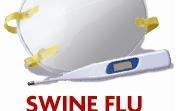Students and administrators say that some of victims’ reluctance to formally report sexual assault cases stems from what they see as a lengthy and emotionally painful Ad Board process with an uncertain outcome.
Ryan, who took a leave of absence soon after the incident, says he felt uncomfortable with the prospect of being “cross-examined” by others about his ordeal.
“Do I want to relive this in front of strangers over and over again?” Ryan says he asked himself at the time.
While all victims of sexual assault are likely to suffer from crippling emotional aftershocks, Harvard students—with their countless academic and extracurricular activities—may face an added burden when deciding whether to bring a case to the Ad Board or law enforcement.
“I’ve had students tell me that they stop and ask themselves whether they have time to go through the process of reporting—with courses, activities, a job, and the rest of their lives,” says Susan B. Marine, director of the Harvard Women’s Center and former director of OSAPR.
And of those who do initially decide to go forward, many are dissuaded by other difficulties in the Ad Board process.
After speaking with his resident dean about his experience, Ryan met with Secretary of the Ad Board John “Jay” L. Ellison to discuss the process.
But Ryan says he did not feel comforted by Ellison and other officials’ continued emphasis on the uncertainty of the outcome of the Ad Board’s decision.
Ad Board rulings in sexual assault cases have long been hindered by inadequate evidence, according to Jennifer Leaning, a human rights professor and chair of the Leaning Committee, which led a 2003 review of how the Ad Board has handled sexual assault cases.
Cases in which the Ad Board is unable to hand down a conclusion due to insufficient evidence result in a “take no action” ruling.
The Leaning Committee recommended the use of an independent fact-finder to more comprehensively investigate cases.
The fact-finder was, in part, meant to help reduce the number of cases that ended with the inconclusive “take no action” ruling.
But even the expertise of the fact-finders cannot completely overcome the inherent difficulty of proving the occurrence of a sexual assault, which often has no outside witnesses.
“At the end of the day, there were two people in the room,” Rankin says. “If it’s just [their] word against the other person’s word...[for the student], it can feel like a roll of the dice.”
Ryan says the knowledge that his case would likely end in an inconclusive ruling was a deal breaker for him, so he did not bring his case to the Ad Board.
Read more in News
Feminist Calls for VeganismRecommended Articles
-
Back Home and Down to EarthELYRIA, Ohio — It was two years ago this summer—the week ending June 22, 2007—that the first intimations of economic
-
Harvard Near National Average, Above Mass. Average for Flu-Like Illness Between Sept. 12 and 18Harvard University Health Services reported about 50 new cases of students with influenza-like illnesses during the period of September 12-18, placing Harvard at the national average for new flu infections on college campuses.
-
 Don't Catch the Swine Flu
Don't Catch the Swine Flu -
Administrative Board Disciplinary Cases Increase By 150%The Secretary of the Ad Board attributes the increase to a year-old reform which has encouraged professors and students to turn in more students for academic dishonesty.
-
2012-2013 Ad Board Stats Reflect Three-Fold Spike in Academic Dishonesty CasesAccording to the statistics, 97 students involved in academic integrity cases were required to withdraw in 2012-2013, the year that saw Harvard’s largest cheating investigation in recent memory.
-
Changing the BoardBeginning next academic year, the Ad Board will implement the largest structural changes in its history, changes that will alter both the types of cases and the number of cases the Board will deliberate on in the future.













